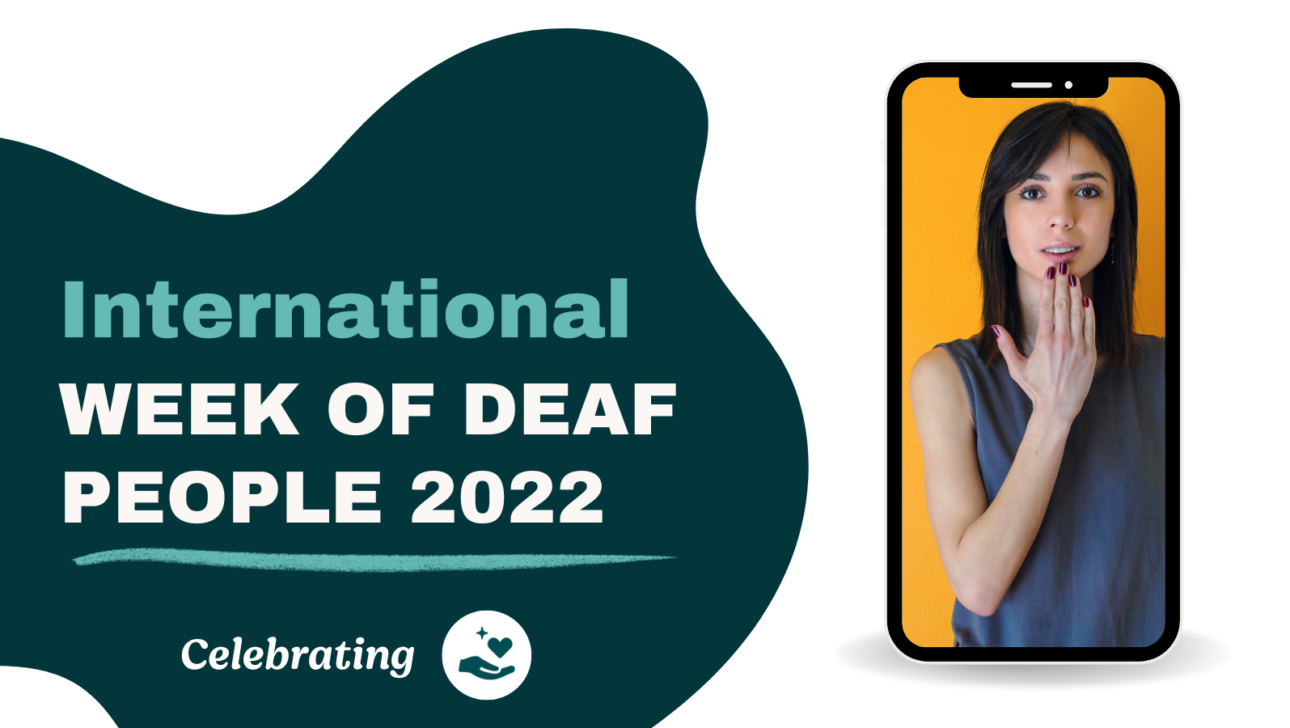Beginner’s Guide to Being an Ally to Deaf Colleagues
Disability inclusion means recognizing people with disabilities belong in all the same places as you and improving access. This week is International Week of Deaf People 2022, led by the World Federation of the Deaf (WFD).
Educating the public on the deaf and hard of hearing community, its culture, and history is essential to their inclusion and accessibility in physical and digital spaces. Many assumptions are made about the deaf community, their preferences, needs, and prejudices they experience in the workplace. In celebration of this week and in the spirit of improving disability inclusion and language accessibility for deaf colleagues, let’s look at three simple steps you can take.
Improve Digital and IRL Meeting Accessibility
When you’re on a Zoom call, you may take for granted that you hear the conversation. Deaf participants need text or sign language to engage. How can you be more inclusive of deaf colleagues or advocate for their needs in meetings?
Take these inclusive actions
- Open up settings in the videoconference tool or tools you use. Enable live captioning or transcription. Here are help articles for Zoom, Teams, and Google Meet.
- Ask meeting attendees if they need or prefer accommodations. For example, would a transcript of the meeting afterwards be helpful?
- Share with your manager how helping people with disabilities feel more included is good for morale, productivity, and business outcomes.
- Consider when a sign language interpreter is appropriate. The WFD ranked each state’s accessibility of COVID-19 briefings, resulting in a list of examples of what it means to include sign language interpreters (and, regrettably, what many states did wrong).
Learn American Sign Language (ASL) Phrases
Sign language is another critical support in the deaf community. Communication is imperative in all work and is how we build human relationships. How would your day to day work be different if you relied on sign language, but none of your colleagues knew even a whisper of American Sign Language (ASL)? It might feel pretty lonely or, at times, frustrating.
Take these inclusive actions
- Learn basic ASL phrases or enroll in a class in your community. Here’s a resource roundup from Wired with popular apps to begin learning.
- Ask the DEI team in your organization to host a workshop on language access. Joshin creates ready-to-use workshops on topics just like this if they’d like help selecting or tailoring training to your company.
Check Your Assumptions
If you are hearing, another simple step you can take is examining your assumptions about spoken language. A common misconception by hearing folks is that access to sound is a universal goal. It isn’t.
Take these inclusive actions
- Read this insightful piece by Tie Wang-Jones, Ikea’s Digital IDEA CoE Sr Director, about the moment she realized her incorrect assumptions about the desire to hear as it relates to cochlear implants.
- Watch this 3-minute clip of Marlee Matlin share her point of view on cochlear implants and deaf culture. It’s not as black and white as you might think. In the video she poses the question, “Who are you to decide” if deaf persons should or should not sign?
For more stories from the disabled and neurodivergent community and educational content, subscribe to our monthly digest newsletter, Included.
We’d love to hear what surprised or inspired you. Weigh in on LinkedIN or Twitter.
